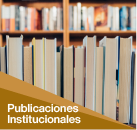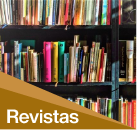Mostrar el registro sencillo del ítem
Incorporación de la Práctica de los Tejidos Ancestrales con los Niños y Niñas de la Comunidad Amaru, distrito de Písac, provincia de Calca (Cusco)
| dc.contributor.advisor | Guevara Valdivia, María Graciela | |
| dc.contributor.author | Palomino Sotalero, Asencion | es_PE |
| dc.contributor.author | Quispe Huaychay, Isabela | es_PE |
| dc.date.accessioned | 2025-06-02T07:16:02Z | |
| dc.date.available | 2025-06-02T07:16:02Z | |
| dc.date.issued | 2024-06-20 | |
| dc.identifier.uri | http://repositorio.pukllasunchis.org/xmlui/handle/PUK/153 | |
| dc.description.abstract | Optamos por elaborar esta investigación, al observar que en las escuelas donde realizamos nuestras prácticas preprofesionales no se toma en cuenta la práctica del tejido a pesar de ser tradicionalmente comunidades tejedoras, por lo que se está perdiendo este conocimiento ancestral. Observamos, también, que la mayoría de estudiantes que hemos conocido en nuestra labor docente sienten vergüenza de tejer, sobre todo los varones. Ellos consideran que esta es una actividad propia de las mujeres. La práctica textil en las comunidades es muy importante, porque a través de ella los pobladores muestran su cultura y sus vivencias. Consideramos que hoy en día la enseñanza en las escuelas no está completamente contextualizada, de ahí nuestro interés por explorar los saberes que todavía conservan la población de Amaru sobre los textiles. Esta es una investigación cualitativa porque se propone recoger testimonios sobre los textiles. Con los testimonios recogidos, hemos diseñado una propuesta de talleres que van a contribuir a incorporar este saber en la escuela primaria EIB. Sabemos que muchas veces, no hay un esfuerzo de parte de los docentes por diversificar el currículo y trabajar a partir del contexto y las experiencias propias de las comunidades. Con este material, los docentes podrán tener ideas de cómo hacerlo ya que es también interés de las comunidades. Algo que mencionan las sabias entrevistadas es que las autoridades deben comprometerse a la recuperación de estas prácticas tradicionales. | es_PE |
| dc.description.abstract | Abstract We chose to carry out this research, observing that in the schools where we carry out our pre-professional practices, the practice of weaving is not taken into account despite being traditionally weaving communities, so this ancestral knowledge is being lost. We also observe that the majority of students we have met in our teaching work feel ashamed of knitting, especially the men. They consider this to be an activity specific to women. The textile practice in the communities is very important because through it, the residents show their culture and their experiences. We consider that today teaching in schools is not completely contextualized, hence our interest in exploring the knowledge that the Amaru population still retains about textiles. This is a qualitative investigation because it aims to collect testimonies about textiles. With the testimonies collected, we have designed a proposal for workshops that will contribute to incorporating this knowledge in the EIB primary school. We know that many times, there is no effort on the part of teachers to diversify the curriculum and work from the context and experiences of the communities. With this material, teachers will be able to have ideas on how to do it since it is also of interest to the communities. Something that the wise women interviewed mention is that the authorities must commit to the recovery of these traditional practices. Keywords: Cultural practices, ancestral weavings, Bilingual Intercultural Education. | es_PE |
| dc.description.abstract | Pisiy Rimayllapi Prácticas profesionales yachay wasi rurasqaykupi huk sasachakuyta qhawarirqayku, chay rayku kay k’uskiyta aqllarirayku, manañan kunan p’unchaykunaqa yuyanchankuñachu awaq allukunaña kachkaspas, manaña munakuchu awayta, chaymi kay ñawpa yachaykunata chinkarachipuchkanku. Huk kaqninmi, musuq miray taytakuna, mamakuna manaña munankuchu wawanku kay ñawpa ruraykunamanta yachanankuta, paykunaqa harkakunkuraqmi mama siminkupi yachanankutapas. Kunan pacha yachakuqkuna p’inqakunku awayta, astawanqa qhari wawakuna, warmikunallapaqmi allin chay rurayqa ninku, ichaqa qhawarisqankuman hina wakin wawakuna llakikuyninkuta riqsirichiwanku, chay ruwaykuna chinkasqanmanta, p’achankupas huqniraqllaña. Kay ruwaypiqa ruwarqaykutaqmi huk calendario nisqata tukuy p´achakunamanta imayna allinmi nuqanchispaq chaymanta, chaywanmi huntapariyku wawakunaq yacharisqankuwan ima, hinallataq ñuqaykupas kayku chayna aylukunamanta awaq yachaqkuna wakirisqakuna. umalliqkuna yanaparinanku chay ñawpa yachaqninchiskunatamana mana chinkananpaq, chaykunatan kunankamapas waqaychananchis kay llaqtanchiskunaq yuyayninkunata ancha allimpuni. Kay sasanchaykunaman tupaspaqaykupin ñuqayku niyku allin takyasqallapunim kananchik hinaspa huk herramienta pedagógica nisqawanmi, ahinataq talleres de tejer ancestrales nisqawan, yuyaymanachiwasun, iv kaykunaqa ruwaykuna culturalkuna kasqanraykum, chaykunam identidadninchikta kallpanchan. Chanin rimaykuna: Ñawpa yachaykuna, kawsaymanta ruraykuna, ñawpa pacha p’achakuna, awasqa tallerkuna, herramienta pedagógica, EIB yachaywasi, yachachiqkuna, tayta mamakuna. Chanin rimaykuna: Ñawpa yachaykuna, kawsaymanta ruraykuna, ñawpa pacha p’achakuna, awasqa tallerkuna, herramienta pedagógica, EIB yachaywasi, yachachiqkuna, tayta mamakuna. | es_PE |
| dc.format | application/pdf | es_PE |
| dc.language.iso | spa | es_PE |
| dc.publisher | Asociación Pukllasunchis | es_PE |
| dc.rights | info:eu-repo/semantics/openAccess | es_PE |
| dc.rights.uri | https://creativecommons.org/licenses/by-nc-sa/4.0/ | es_PE |
| dc.subject | Educación Intercultural Bilingüe | es_PE |
| dc.subject | Saberes Ancestrales | es_PE |
| dc.subject | tejidos ancestrales | es_PE |
| dc.title | Incorporación de la Práctica de los Tejidos Ancestrales con los Niños y Niñas de la Comunidad Amaru, distrito de Písac, provincia de Calca (Cusco) | es_PE |
| dc.type | info:eu-repo/semantics/bachelorThesis | es_PE |
| dc.type.version | info:eu-repo/semantics/publishedVersion | es_PE |
| dc.publisher.country | PE | es_PE |
| dc.subject.ocde | https://purl.org/pe-repo/ocde/ford#5.03.01 | es_PE |
| renati.advisor.orcid | https://orcid.org/0009-0001-4674-0552 | es_PE |
| renati.type | https://purl.org/pe-repo/renati/type#tesis | es_PE |
| renati.level | https://purl.org/pe-repo/renati/nivel#tituloProfesional | es_PE |
| renati.discipline | 112096 | es_PE |
| renati.juror | Eguiluz Duffy, Cecilia María | es_PE |
| renati.juror | Suárez Sánchez, Richard | es_PE |
| renati.juror | Conde Marquina, Antonieta | es_PE |
| thesis.degree.name | Licenciado en Educación Primaria Intercultural Bilingüe | es_PE |
| thesis.degree.discipline | Educación Primaria Intercultural Bilingüe | es_PE |
| thesis.degree.grantor | Escuela de Educación Superior Pedagógica Privada Pukllasunchis | es_PE |
| renati.author.dni | 76465153 | |
| renati.author.dni | 76555430 | |
| renati.advisor.dni | 23983513 |







